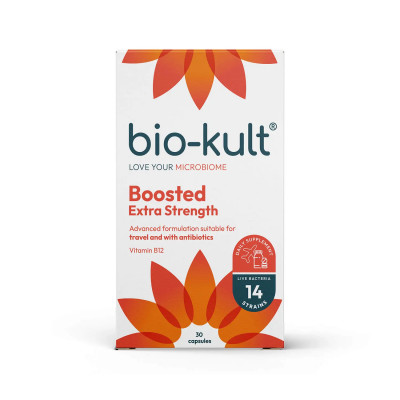
Monthly Offers
Sign up for exclusive offersYour Favourite Brands
View All BrandsRead Our Blog
For The Latest Recipes & MoreFree Delivery
On Orders Over £55Monthly Offers
Sign up for exclusive offersYour Favourite Brands
View All BrandsRead Our Blog
For The Latest Recipes & MoreFree Delivery
On Orders Over £55Digestive Aids are products that are designed to help improve digestion and alleviate digestive issues. They can come in many different forms, including dietary supplements, over-the-counter medications, and natural remedies.
Digestive aids work in a variety of ways to promote healthy digestion. Some products contain digestive enzymes that help break down food and improve nutrient absorption, while others contain probiotics, which are live bacteria that help maintain a healthy balance of microorganisms in the gut. Fiber supplements can also aid digestion by promoting regularity and preventing constipation.
In addition to aiding digestion, some digestive aids can help alleviate symptoms of digestive issues such as bloating, gas, and heartburn. For example, antacids can neutralize stomach acid to relieve heartburn, while ginger supplements can help ease nausea.
It is important to note that while digestive aids can be helpful for some people, they may not be effective or appropriate for everyone. It is always a good idea to speak with a healthcare professional before starting any new digestive aid or supplement.
The gut is home to trillions of microorganisms, including both beneficial and harmful bacteria. In some cases, an overgrowth of bad bacteria in the gut can lead to digestive issues and other health problems. If you are experiencing symptoms of an overgrowth of bad bacteria in your gut, such as bloating, gas, or diarrhea, there are steps you can take to help restore balance.
Eat a healthy, balanced diet: Consuming a diet rich in fiber and whole foods can help promote the growth of beneficial bacteria in the gut while also starving out bad bacteria. This means focusing on foods like fruits, vegetables, whole grains, lean proteins, and healthy fats, and avoiding processed and sugary foods.
Take Probiotics: Probiotics are live bacteria that can help restore balance in the gut. They can be found in fermented foods like yogurt, kefir, and sauerkraut, or in supplement form. Look for a probiotic supplement with a variety of strains and at least 10 billion colony-forming units (CFUs).
Use Antibiotics Judiciously: Antibiotics can be effective at killing harmful bacteria, but they also wipe out beneficial bacteria in the gut. It is important to use antibiotics only when necessary and to follow your healthcare provider's instructions closely.
Manage Stress: Chronic stress can disrupt the balance of bacteria in the gut, so finding ways to manage stress can be helpful. This may include practicing relaxation techniques like deep breathing, meditation, or yoga.
Limit Alcohol & Caffeine: Excessive alcohol and caffeine intake can disrupt the balance of bacteria in the gut and exacerbate digestive issues. Limiting your intake of these substances may help restore balance.
Talk to a healthcare professional: If you are experiencing persistent digestive issues or suspect an overgrowth of bad bacteria in your gut, it is important to speak with a healthcare professional. They can help you determine the underlying cause of your symptoms and recommend appropriate treatment options.
Apple Cider Vinegar (ACV) has become increasingly popular as a natural remedy for a variety of health issues, including digestive problems. While some people swear by ACV for gut health, there is limited scientific evidence to support its use.
ACV is made by fermenting apples with yeast and bacteria, which creates acetic acid, the main active ingredient in ACV. Acetic acid is believed to have antimicrobial properties, which means it can help kill harmful bacteria in the gut. It may also help stimulate the production of digestive enzymes and improve nutrient absorption.
After eating a meal, it is common to experience some digestive discomfort such as bloating, gas, or indigestion. Fortunately, there are several things you can do to help improve digestion and alleviate these symptoms.
Take a walk: Going for a short walk after a meal can help stimulate digestion and encourage the movement of food through the digestive tract. This can be particularly helpful after a large or heavy meal.
Stay hydrated: Drinking plenty of water can help keep things moving smoothly through the digestive system. It can also help prevent constipation, which can be a common cause of digestive discomfort.
Try Herbal Teas: Certain herbal teas, such as peppermint, ginger, or chamomile, can help soothe the digestive tract and alleviate symptoms of bloating and indigestion. Drinking a warm cup of tea after a meal can be particularly beneficial.
Take Digestive Enzymes: Digestive enzymes are supplements that can help break down food and improve nutrient absorption. Taking a digestive enzyme supplement with meals can help alleviate digestive discomfort and promote healthy digestion.
Practice Mindful Eating: Eating slowly and mindfully can help prevent overeating and improve digestion. Chew your food thoroughly and take time to savor each bite, allowing your body to properly digest and absorb the nutrients in your food.